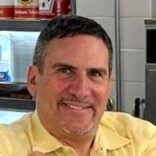‘Give me two rings,” Grandma Jean used to say. She was not talking about jewelry. In order to spare us the “long distance” phone charges from our house in Great Neck, L.I., to her apartment in Flushing, Queens, she instructed us to call her, let the phone ring twice and hang up. She would then call us back and thus end up paying for the call. Although I saw her almost weekly, talking to her on the phone was always a great pleasure; this is probably why I have never read James M. Cain’s Depression-era thriller, “The Postman Always Rings Twice,” or viewed any of its film adaptations — I don’t want to have any negative associations with two rings, whether of the doorbell or telephone variety.
I grew up with an odd fascination for telephones. As an avid reader of comic books, I exulted when Clark Kent would rush into a phone booth and emerge as Superman, or when Bruce Wayne (Adam West) and Commissioner Gordon (Neil Hamilton) in the “Penguin’s Nest” episode of the 1960s “Batman” TV show end up talking to each other in adjoining phone booths, after Wayne has secretly had Alfred (Alan Napier) connect the commissioner’s call to the Bat-phone. Well into the 1990s, when I had graduated from college and was living on the Upper West Side, I still had a black rotary (not push button) phone, which reposed on a glass shelf made from an old telephone booth — it had the word “telephone” in bold red capital letters.
When I studied Jewish comedy in graduate school, I learned that the telephone had been a popular instrument of American Jewish humor, beginning with the vaudeville routine “Cohen on the Telephone,” first recorded by Joe Hayman in London in July of 1913; it sold two million copies in the United States.
The routine satirizes the difficulties that immigrants had both with technology and with the English language. An apartment dweller with a heavy Yiddish accent places his first phone call. He telephones his landlord to ask him to make some repairs, but has trouble making himself understood: “No, it’s not Lieutenant Cohen, it’s your tenant Cohen!”
In the 1920s, George Jessel was catapulted to national popularity largely through his vaudeville routine, “Hello Mama” (or “Phone Call from Mama”), in which he tries to help his mother with her medical problems, discovers to his chagrin that she has mistakenly cooked the parrot that he had sent her and otherwise copes with the difficulties of relating to an aging parent without seeing her in person. In the postwar era, Elaine May and Mike Nichols installed the Jewish mother stereotype in the center of American culture by showing both sides of the conversation, which they created through improvisation; Nichols becomes exasperated as May piles on one guilt trip after another; she waits by the phone for hours and doesn’t eat a thing, so that her mouth won’t be full when it finally rings.
Finally, in the mid-1960s, Bob Booker and George Foster released the comedy album, “You Don’t Have to be Jewish,” which contained “Phone Call from Long Island,” in which a daughter, played by Arlene Golonka, calls her mother, played by Betty Walker, to ask for help with a multitude of cascading problems — a snowstorm, a broken car, two sick children, a messy house and a lunch that needs to be prepared for her Hadassah chapter. The mother offers to take a subway, a commuter train, a bus and a long walk to save the day. But then they realize that the daughter has called the wrong number and that this is not her mother after all. (“So you’re not coming?” the younger woman asks plaintively.) The routine speaks to both the physical and emotional distance created between the generations by Jews moving out of the city. Journalist Walter Winchell joked that the album was the “No. 1 seller in suburbia,” replacing the fountain pen as a bar mitzvah gift.
Sadly, phone calls seem to be fading out, both in comedy and in real life. If my grandmother were alive today, we would likely be communicating electronically most of the time. And then I would not be able to hear her voice, gauge her emotions and share with her on the deeper level that actually talking, rather than texting, makes possible.
A final memory: As much as she loved to talk on the phone, my grandmother was not familiar with answering machines, the clunky devices that took recorded messages before voicemail was invented — think of James Garner’s 1970s TV show “The Rockford Files,” in which each episode opened with an answering machine message from a different friend. My grandmother was able to leave a message, but she didn’t know how to end it. She decided that it was just like writing a letter. “So that’s it,” she would declare. “Love, Grandma.”
Ted Merwin writes about theater for the paper. He is the author of the National Jewish Book Award-winning “Pastrami on Rye: An Overstuffed History of the Jewish Deli.”
The New York Jewish Week brings you the stories behind the headlines, keeping you connected to Jewish life in New York. Help sustain the reporting you trust by donating today.





